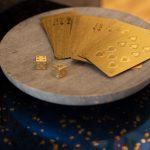Support our educational content for free when you purchase through links on our site. Learn more
250+ Mind Trick Questions: How They Work! 🤯
Have you ever been completely stumped by a question that seemed simple at first glance, only to realize it was a cleverly disguised mind trick? We’ve all been there! These aren’t just parlor games; they’re fascinating explorations of how our brains work, revealing the shortcuts and biases that can lead us astray. In this comprehensive guide, we’ll unravel the secrets behind mind trick questions, exploring the psychology, different types, and even how to craft your own. We’ll reveal the cognitive biases that make these questions so effective, from confirmation bias to the anchoring effect. Get ready to have your mind blown—and maybe even learn a thing or two about yourself in the process!
Did you know that the way a question is framed can dramatically alter your response? This is just one of the many psychological principles at play in mind trick questions. This article will equip you with the knowledge to both solve and create these fascinating puzzles, unlocking a deeper understanding of your own cognitive processes.
Key Takeaways
- Mind trick questions exploit cognitive biases to create illusions and challenge assumptions.
- Different types of mind trick questions exist, including riddles, logic puzzles, and those based on perception.
- Understanding cognitive biases (like confirmation bias and anchoring bias) is crucial for both solving and creating these questions.
- Practice is key to improving your ability to solve mind trick questions.
- Mind trick questions have practical applications beyond entertainment, including education, marketing, and negotiation.
Want to explore the power of suggestion and influence further? Check out our Magic Psychology section: Magic Psychology. Looking for some amazing card tricks to add to your repertoire? Visit our Card Tricks section.
Table of Contents
The Evolution of Mind Trick Questions: A Journey Through History
Unmasking the Psychology Behind Mind Trick Questions
Cognitive Biases: The Secret Sauce of Mind-Bending Questions
Types of Mind Trick Questions: A Comprehensive Guide
- Lateral Thinking Puzzles: Where Logic Takes a Holiday
- Mathematical Brain Teasers: Numbers with a Twist
- Riddle Me This: Wordplay and Enigma
- Illusions and Perception Tricks: Seeing is Not Always Believing
- Paradoxical Posers: Questions That Defy Logic
- Hypothetical Scenarios: Testing Your Problem-Solving Skills
- Ethical Dilemmas: Navigating Moral Mazes
- The Power of Suggestion: Subtle Influence in Mind Trick Questions
- Leading Questions and Loaded Language: The Art of Manipulation
- 250+ Best Mind Trick Questions to Blow Your Mind!
Crafting Your Own Mind-Bending Questions: A Step-by-Step Guide
Mastering the Art of Delivery: Tips for Effective Presentation
Beyond Entertainment: The Practical Applications of Mind Trick Questions
The Ethics of Mind Trick Questions: When to Use Caution
Quick Tips and Facts
Before we dive into the fascinating world of mind trick questions, let’s arm you with some quick tips and facts to get your brain buzzing! 🧠
- Mind trick questions aren’t just about finding the right answer; they’re about challenging your assumptions and thinking outside the box. They’re a fantastic way to exercise your brain and improve your cognitive skills! 🎉
- Many mind trick questions rely on cognitive biases, which are systematic errors in thinking that can lead you astray. We’ll explore these biases later, but knowing they exist is half the battle! 😉
- The best way to improve at solving mind trick questions is through practice. The more you engage with them, the better you’ll become at spotting the tricks and finding the solutions. Think of it like training for a mental marathon! 🏃♀️
- Don’t be afraid to ask for clarification if you’re unsure about a question. Sometimes, the wording itself is part of the trick! 🤔
- Lateral thinking is key! These questions often require you to think beyond the obvious and consider alternative interpretations. Let your imagination run wild! 🦄
Want to learn more about how to craft your own mind-bending questions? Check out our comprehensive guide: Mind Trick Questions: A Comprehensive Guide.
The Evolution of Mind Trick Questions: A Journey Through History
The art of posing mind-bending questions has a rich history, stretching back centuries! Think of ancient riddles and philosophical paradoxes – these were the early ancestors of the mind trick questions we know and love today.
- Ancient Greece: Socrates, the master of philosophical inquiry, famously used a method called the Socratic method, which involved asking a series of carefully crafted questions to expose contradictions in his interlocutors’ thinking. This was a precursor to the way many mind trick questions challenge assumptions.
- Medieval Times: Riddles and word puzzles were popular forms of entertainment, often incorporating clever wordplay and ambiguity. Think of the classic riddle: “What has an eye but cannot see?” (An needle). These early riddles laid the groundwork for the more complex mind trick questions we see today.
- Modern Era: The rise of psychology and cognitive science has provided a deeper understanding of how our minds work, leading to the creation of more sophisticated mind trick questions that exploit cognitive biases and perceptual illusions. This is where the real magic happens! ✨
Want to explore the psychology behind these tricks? Learn more about the power of suggestion and influence in our Magic Psychology section: Magic Psychology.
Unmasking the Psychology Behind Mind Trick Questions
The true power of a mind trick question lies in its ability to tap into the workings of the human mind. It’s not just about clever wordplay; it’s about understanding how our brains process information and make decisions.
- Cognitive Processes: Mind trick questions often exploit the way our brains use heuristics (mental shortcuts) and biases to make quick judgments. These shortcuts can sometimes lead to errors in reasoning, making us susceptible to the tricks embedded in the questions.
- Framing Effects: The way a question is framed can significantly influence our response. A question presented in a positive light might elicit a different answer than the same question presented negatively. This is a powerful tool used in many mind trick questions.
- Confirmation Bias: We tend to favor information that confirms our existing beliefs and disregard information that contradicts them. Mind trick questions can cleverly use this bias to lead us to incorrect conclusions.
For a deeper dive into the psychology of magic, check out our articles on Magic Psychology.
Cognitive Biases: The Secret Sauce of Mind-Bending Questions
Cognitive biases are systematic patterns of deviation from norm or rationality in judgment. They are essentially mental shortcuts that our brains use to process information quickly, but these shortcuts can sometimes lead us astray. Mind trick questions often exploit these biases to create their illusions.
| Bias | Description | Example in a Mind Trick Question |
|---|---|---|
| Confirmation Bias | The tendency to search for, interpret, favor, and recall information that confirms or supports one’s prior beliefs or values. | A question might be phrased to subtly lead you towards a specific answer that aligns with a common misconception. |
| Anchoring Bias | The tendency to rely too heavily on the first piece of information offered (the “anchor”) when making decisions. | A question might start with a seemingly irrelevant piece of information that influences your subsequent judgments. |
| Availability Heuristic | The tendency to overestimate the likelihood of events that are more easily recalled, often because they are vivid or recent. | A question might use a memorable event or statistic to make a less likely outcome seem more probable. |
| Framing Effect | The way a question is presented (framed) can significantly influence the answer. | The same question phrased positively or negatively can elicit different responses. |
| Bandwagon Effect | The tendency to do or believe things because many other people do or believe the same. | A question might imply that a certain answer is the popular or correct one, even if it’s not. |
Understanding these biases is crucial to mastering the art of both creating and solving mind trick questions.
Types of Mind Trick Questions: A Comprehensive Guide
Mind trick questions come in many forms, each employing different techniques to challenge your thinking. Let’s explore some of the most common types:
-
Lateral Thinking Puzzles: Where Logic Takes a Holiday
Lateral thinking puzzles require you to think outside the box and consider unconventional solutions. They often involve unexpected twists and turns, forcing you to abandon your initial assumptions. A classic example is: “A man is found dead in a field. He’s wearing a backpack. What happened?” (He was a skydiver whose parachute failed).
-
Mathematical Brain Teasers: Numbers with a Twist
These puzzles use numbers and mathematical concepts in unexpected ways, often relying on clever wordplay or misdirection. They might involve hidden patterns, logical fallacies, or unconventional interpretations of mathematical operations.
-
Riddle Me This: Wordplay and Enigma
Riddles are a classic form of mind trick question, often relying on clever wordplay, ambiguity, and double meanings. They can range from simple word puzzles to complex enigmas that require considerable lateral thinking.
-
Illusions and Perception Tricks: Seeing is Not Always Believing
These questions play on our perception of the world, using visual or auditory illusions to create a sense of confusion or misdirection. They can be particularly effective in demonstrating how our brains can be tricked by sensory input. Check out our section on Levitation for more examples of how perception can be manipulated.
-
Paradoxical Posers: Questions That Defy Logic
These questions present situations or statements that seem to contradict themselves or defy logic. They often highlight the limitations of our reasoning abilities and force us to confront the inherent ambiguities of language and thought.
-
Hypothetical Scenarios: Testing Your Problem-Solving Skills
These questions present hypothetical scenarios that require you to think critically and creatively to find a solution. They often involve ethical dilemmas, strategic decision-making, or problem-solving under pressure.
-
Ethical Dilemmas: Navigating Moral Mazes
These questions present complex moral choices that require you to weigh competing values and consider the potential consequences of your actions. They often highlight the complexities of ethical decision-making and force you to confront your own moral compass.
-
The Power of Suggestion: Subtle Influence in Mind Trick Questions
Many mind trick questions use subtle suggestions and leading questions to influence your response. By carefully crafting the wording of the question, the questioner can subtly guide you towards a particular answer, even if it’s not the most logical or accurate one.
-
Leading Questions and Loaded Language: The Art of Manipulation
Leading questions are questions that subtly suggest a particular answer. Loaded language is language that is emotionally charged or biased, influencing the way we interpret information. Both of these techniques are frequently used in mind trick questions to manipulate our responses.
-
250+ Best Mind Trick Questions to Blow Your Mind!
Prepare to have your mind twisted and turned with this extensive list of mind-bending questions! We’ve categorized them for your convenience, from easy warm-ups to brain-busting challenges. Get ready to be amazed! 🤩
- Easy: These are perfect for beginners, designed to get your mind working and build your confidence.
- Medium: These require a bit more lateral thinking and problem-solving skills.
- Hard: These are for the true masters of mind trickery, designed to push your cognitive abilities to their limits.
- Bonus Round: We’ve included a special bonus round of particularly challenging questions to test your mettle!
Crafting Your Own Mind-Bending Questions: A Step-by-Step Guide
Now that you’ve experienced the wonder of mind trick questions, why not try creating your own? Here’s a step-by-step guide:
- Choose a Type: Decide what kind of mind trick question you want to create (riddle, logic puzzle, etc.).
- Identify a Cognitive Bias: Select a cognitive bias you want to exploit (confirmation bias, anchoring bias, etc.).
- Develop the Question: Craft a question that subtly leads the respondent towards a specific answer while concealing the trick.
- Test and Refine: Test your question on others and refine it based on their responses. The goal is to create a question that is both challenging and engaging.
- Add a Twist: Consider adding an unexpected twist or element of surprise to make your question even more memorable and effective.
Mastering the Art of Delivery: Tips for Effective Presentation
The way you present a mind trick question can significantly impact its effectiveness. Here are some tips for mastering the art of delivery:
- Build Anticipation: Create a sense of mystery and intrigue before revealing the question.
- Maintain Eye Contact: Make eye contact with your audience to build rapport and enhance engagement.
- Use Your Voice: Vary your tone and pace to emphasize key words and create a sense of drama.
- Observe Reactions: Pay attention to your audience’s reactions to gauge their understanding and adjust your delivery accordingly.
- Reveal the Answer: Once the audience has had a chance to ponder the question, reveal the answer in a clear and engaging way.
Beyond Entertainment: The Practical Applications of Mind Trick Questions
While mind trick questions are undeniably fun and entertaining, they also have practical applications in various fields:
- Education: They can be used to enhance critical thinking skills, problem-solving abilities, and creativity.
- Marketing and Sales: Understanding cognitive biases can help marketers create more persuasive messages and influence consumer behavior.
- Negotiation: Mind trick questions can be used to gain a better understanding of an opponent’s perspective and influence the outcome of a negotiation.
- Interviewing: Some interviewers use trick questions to assess a candidate’s problem-solving skills and ability to think under pressure.
The Ethics of Mind Trick Questions: When to Use Caution
While mind trick questions can be a source of fun and learning, it’s important to use them responsibly. Here are some ethical considerations:
- Avoid Deception: Don’t use mind trick questions to deceive or manipulate others for personal gain.
- Respect Boundaries: Be mindful of your audience and avoid using questions that could be offensive or hurtful.
- Promote Learning: Use mind trick questions as a tool for learning and self-improvement, not as a means of belittling or humiliating others.
- Transparency: If you’re using mind trick questions in a professional setting, be transparent about their purpose and intent.
Conclusion
So, there you have it – a deep dive into the captivating world of mind trick questions! We’ve explored their history, the psychology behind them, the different types, and even how to create your own. Remember, these questions aren’t just about finding the “right” answer; they’re about challenging your assumptions, expanding your thinking, and having some fun along the way! 🎉
While we’ve covered a lot of ground, the journey of understanding the human mind is an ongoing one. The more you explore these fascinating puzzles, the more you’ll appreciate the intricate workings of your own brain and the power of perception. Keep practicing, keep questioning, and keep your mind sharp! 🧠
Recommended Links
Want to delve deeper into the world of mind tricks and illusions? Here are some resources to get you started:
👉 CHECK PRICE on:
- Books on Mind Tricks and Illusions:
FAQ
What are some common pitfalls to avoid when creating mind trick questions?
- Overly Complex Wording: Avoid using overly complex or ambiguous language that could confuse the respondent.
- Unclear Instructions: Make sure the instructions are clear and concise, leaving no room for misinterpretation.
- Obvious Tricks: Avoid using tricks that are too obvious or predictable. The goal is to challenge the respondent, not to make them feel frustrated or insulted.
- Cultural Bias: Be mindful of cultural differences and avoid using questions that could be offensive or insensitive to certain groups.
- Ethical Considerations: Always consider the ethical implications of your questions and avoid using them to manipulate or deceive others.
How can I improve my ability to solve mind trick questions?
- Practice Regularly: The more you practice, the better you’ll become at recognizing patterns and spotting tricks.
- Think Outside the Box: Don’t be afraid to think creatively and consider unconventional solutions.
- Break Down the Question: Analyze the question carefully, breaking it down into smaller parts to identify key information and potential ambiguities.
- Consider Different Perspectives: Try looking at the question from different angles and perspectives.
- Learn About Cognitive Biases: Understanding cognitive biases can help you anticipate the tricks used in mind trick questions.
How can I use mind trick questions in a positive and constructive way?
- Educational Purposes: Use them in classrooms or workshops to stimulate critical thinking and problem-solving skills.
- Team Building: Incorporate them into team-building activities to encourage collaboration and creative thinking.
- Personal Enrichment: Use them to challenge yourself and expand your mental horizons.
- Entertainment: Use them to entertain friends and family, sparking engaging conversations and laughter.
- Self-Reflection: Use them to examine your own biases and assumptions.
Are there any resources available to help me learn more about mind tricks and illusions?
Yes! There are many books, websites, and videos available that cover various aspects of mind tricks and illusions. Some suggestions include:
- Books: Search Amazon for books on “magic tricks,” “illusion,” “cognitive psychology,” and “critical thinking.”
- Websites: Explore websites dedicated to magic, puzzles, and cognitive science.
- YouTube Channels: Many YouTube channels feature videos on magic tricks, illusions, and mind-bending puzzles.
Reference Links
- Science of People: Trick Questions
- Straight Dope Message Boards: Mind Reading Trick
- Verywell Mind: Cognitive Biases




